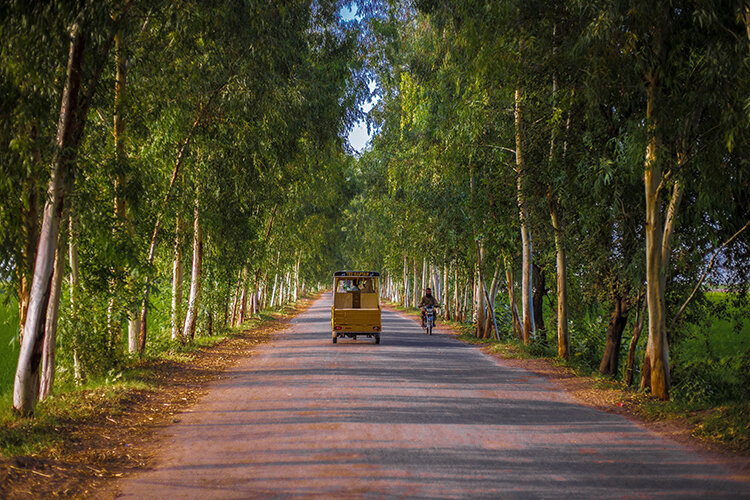Pakistani Bees Are Buzzin’
A scene from Pakistan where honey is now so abundant thanks to a tree planting campaign.
There is good news in the honey world: Pakistan has seen an uptick in honey production thanks to a government push to plant more trees. Due to wildfires, droughts, deforestation and excess logging, the Pakistani government decided to charge their country with a tree-planting campaign to take place over several years.
The benefits have been many and the bees have noticed. In total, 3.5 million trees were planted in Pakistan on 6,000 acres of land in Changa Manga. The trees have matured over the past several years which has helped boost the ever-important bee population and therefore the honey being produced.
The World Economic Forum reports beekeepers in the Changa Manga area of Pakistan are harvesting up to 70% more honey than before the tree-planting campaign began in 2014. The trees are providing homes for bees and conditions for a very diverse flora population of various other plants and flowers.
Forests are vital to the population of bees and other pollinators (let alone other fauna and flora) since they offer bees shelter, shade and water. Since the world has experienced a devastating decline of bee populations because of over-farming, pesticides and generally the changing climate of the earth, this surge in the Pakistani bee population is welcome news.
Currently Pakistan has 7,000 commercial beekeepers caring for more than 1 million beehives in the country. There is enough space to double that number. And the benefit of doubling that number means a major boost in biodiversity, too. Planting trees expands the habitat for bees and then those pollinators, in turn, help to naturally regenerate more forest areas with a variety of trees, plants and flowers.
Everyone wins with more bees.
One of the many varieties of trees being planted in the 10 Billion Trees project is the indigenous bari tree, also known as ziziphus mauritania or the jujube. Honey produced from the nectar of this tree is highly valued for its low glucose content which makes it less likely to crystallize.
The biggest concern now that the honey industry is booming in Pakistan, is to ensure no pesticides are used within 10 miles of this nearly magic stretch of new forest to ensure the purity of the final honey product.

